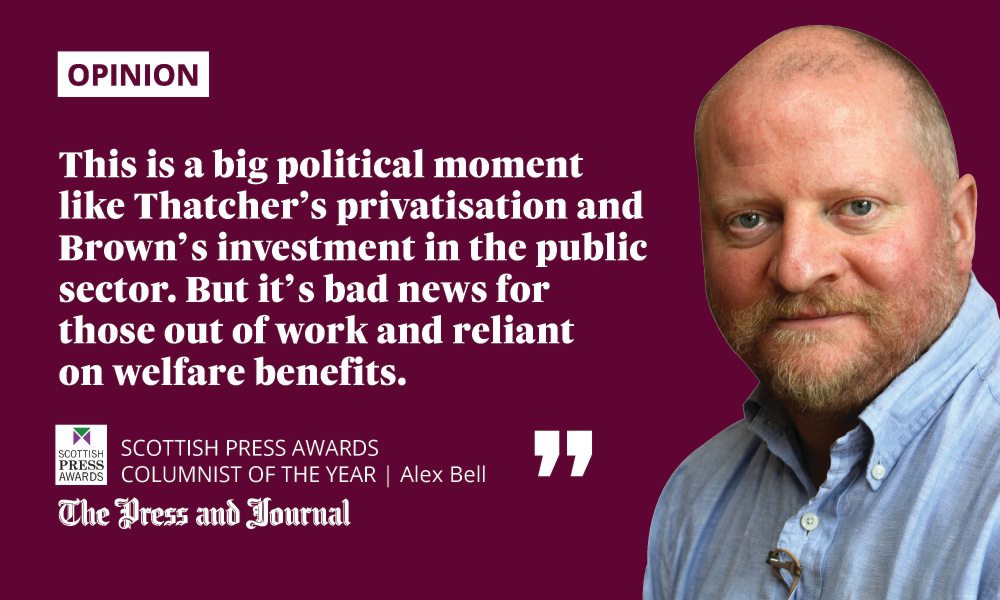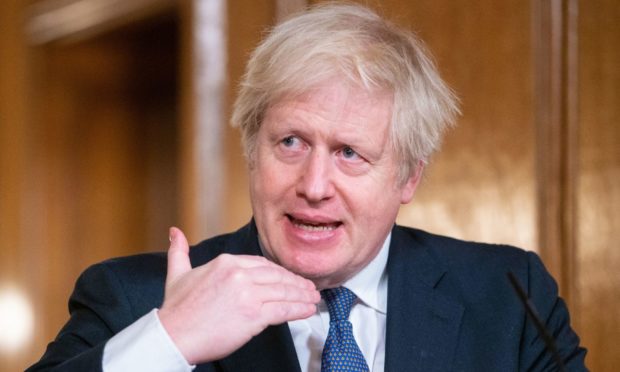The cut to Universal Credit will not be the only blow to welfare. Under this UK Government, its a bad time to be reliant on the state.
It has been obvious for some time that the removal of the Universal Credit uplift would go ahead. Only yesterday did the policy signs come together as a plan.
High wage Britain, here we come – say goodbye to benefits. Boris Johnson has set his government against state intervention.
His speech at the Conservative Party conference presented this as a plan, but it is post hoc rationalising from the chaos of Covid and Brexit.

Over the summer, Johnson has seen the labour shortages and supply chain problems and conjured the data into an opportunity. In his words, Britain will “bounce back from Covid better”.
Firstly, this is not about Covid recovery, but Brexit.
No one in government uses the word. It has become toxic, even to Leavers. But it sits on the shoulders of cabinet ministers like a guilty conscience.
The government knows it promised something and that, logically, after a big change such as Brexit, something should change. They just didn’t really know what.
Hope for new order from Brexit chaos
Events have now persuaded them that what’s different will emerge from an economy adjusting to structural change that was driven by a lack of cheap labour and restrictions on imports.
Out of this chaos will arise a new order – at least that’s the hope.
Whether this is smart political boldness or yet more bluff matters, but not so much as the revolutionary nature of the policy.
In challenging business to fix itself, the prime minister is taking the principles of a market economy at face value.
What a fantastic Conference!
We’re getting on with the job to deliver the people’s priorities.
We will seize this moment and together we will #BuildBackBetter. pic.twitter.com/bUrE4GGMom
— Boris Johnson (@BorisJohnson) October 6, 2021
Where Covid features in this great act of chutzpah is that it gives Johnson cover. He can’t be accused of ideological antipathy to the state after the great lockdown bailout.
It was he who raised Universal Credit in the first place, and sanctioned furlough. Britain has never borrowed so much for the benefit of so many.
In so doing, he’s seen the limits of government.
Borrowing money while keeping a relatively low tax level means all the focus is on the competence of Downing Street. That is an uncomfortable position when shelves are empty.
The onus is now on business not Boris
Johnson is saying, we’ve done our bit, now you do yours.
That’s a brutal message to the poorest in society, but legitimate when addressed to private business.
It doesn’t simply get him off the hook of media attention, but also from political blame. It’s not me guv, it’s them bosses. That’s a smart move.
For all that people may distrust the Tories, they loathe the fat cats, too.
'This is no time for any fight.'
CBI President Lord Karan Bilimoria says business and government needs to work together to recover from Covid.@NickFerrariLBC | @Lord_Bilimoria pic.twitter.com/kykWjRLB0q
— LBC (@LBC) October 6, 2021
If Johnson can survive the short term, and polls suggest he can, he will gain support in the long term for taking on the greed of the private sector.
It is not just about blame and image. In so far as Johnson is sincere about anything, he believes in this new strategy.
It was him who reportedly said in the Brexit debate: “F*** business” in response to some City complaint.
He has no affinity for commerce, having never worked there, nor shown any desire to do so.
By instinct, he’s a cavalier columnist, not a spreadsheet author. That leads him to think business whines as much as any sector, while he knows it is also in receipt of huge state benefits in form of incentives and tax breaks.
Johnson isn’t about to run through the Square Mile with a red flag and a Molotov cocktail, but he’s not going to be swayed by the CBI’s special pleading either. He had already raised corporation tax and he promises a lift in the minimum wage.
This is all fascinating and bold: a big political moment like Thatcher’s privatisation and Brown’s investment in the public sector. But it’s bad news for those out of work and reliant on welfare benefits.
Benefit cuts will suit Brexit believers
Since 2000, the benefits bill has doubled to around £200 billion per annum. That’s five times the defence budget and only a few billion less than the whole NHS.
Any politician coping with record debt and the need to recover is bound to wonder if that can’t be cut – particularly so if you are a freewheeling Tory looking for quick results.
In Johnson’s economics, a labour shortage means there’s no reason to be unemployed. Push that a little further, and he starts to wonder why so many people are unfit for work.
What if full employment at high wages could eliminate the great British “problem” of an ever expanding benefits system?
These are the thoughts in Johnson’s mind. A Britain rebuilt more like Germany, say.
Boris Johnson, cancel the cut. https://t.co/fXakz8dzZd
— Keir Starmer (@Keir_Starmer) October 6, 2021
Don’t be surprised then if the triple lock to pensions is suspended for more than one year, only to miraculously reappear before an election. Expect cuts or freezes to other benefits.
Listen to Labour and the SNP bewail the attack on the poorest, but in doing so paint themselves as spendthrift socialists.
That makes Starmer unelectable in England, while making the SNP seem addicted to high spend. In contrast, Johnson is popular and will remain so.
His economics are high risk and opportunist, but they sound to Brexit voters like common sense.










